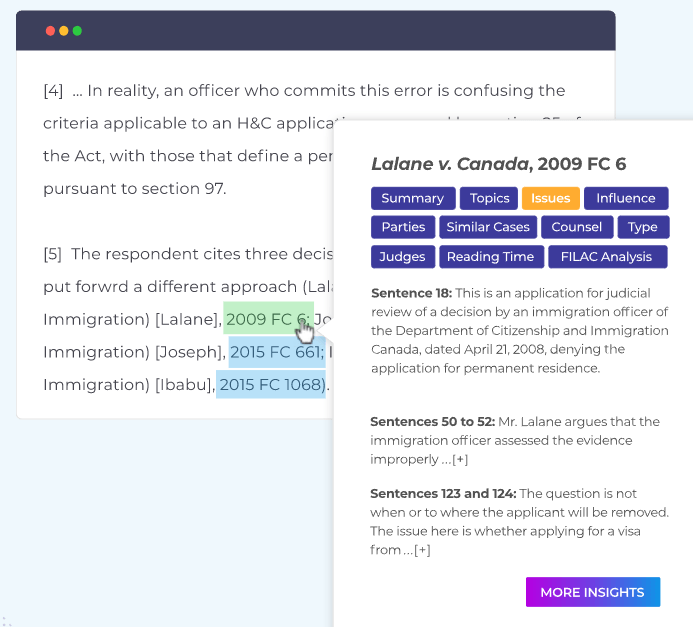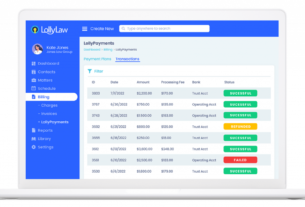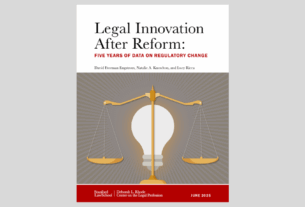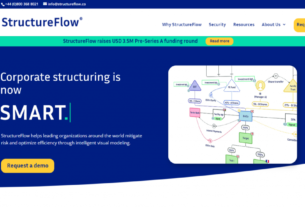Two Canadian companies, Edmonton-based AltaML, an AI studio devoted to building tools “to elevate human potential,” and Ottawa-based Compass Law, an independent Canadian legal publisher, are teaming up to launch a joint venture, Jurisage AI, in order to leverage their expertise in artificial intelligence and legal innovation.
“We bring deep legal publishing and innovation expertise together with world-class machine learning and applied AI specialists to revolutionize the world of legal problem solving,” says the Jurisage website.
The joint venture company says it will develop products that will prioritize workflows that deliver the best and highest value insights in response to the narrowest and simplest input. The primary focus will be on retail product development, but the company says it will also develop application programming interfaces (APIs) to support connection and integration of its AI models with service providers and enterprise users.
Its first retail product, still in development, is MyJr (“My Junior”), a browser extension and Microsoft Word add-in that automatically identifies case citations appearing in any website, Word document, or PDF, and delivers an overlay view of the insights and details legal professionals rely on to validate the importance of the cited case to their immediate needs. It does this without requiring the reader to leave the page.
Colin Lachance, the cofounder and CEO of Compass Law, will also serve as Jurisage CEO. Lachance is a long-established leader in legal publishing and legal research whose career has included stints leading North American operations for the global legal research platform vLex and as president and CEO of the Canadian Legal Information Institute (CanLII).
MyJr Preview
During a recent Zoom call, Lachance gave me a preview of MyJr, which will work with U.S. and Canadian cases.
“As you are engaging with legal information on your screen, if there’s a reference to a cited case, we recognize the citation and you can hover over it and we’ll provide an interactive sidebar or box that allows you to get the precise bits of detail that you want about that case without ever leaving the page that you’re on,” Lachance said.
It can provide details on the case, such as parties, judges and counsel, as well as excerpts showing the case’s facts, issues, analysis, conclusion and more. It can also point you to related cases and related research.
“If you think about how you work now, you’re reading a judgment or an opinion, and the opinion cites 12 other precedential opinions,” Lachance said. “You could open 12 other tabs, but sometimes all you care about for that first one is who the judge is, or for that second one, you just want to know if the issues of that case are actually relevant to what you’re doing.”
MyJr uses the metadata that Compass has developed and the AI that AltaML has developed, Lachance said, “to allow you to grab just the pieces that you want and have that preview.”
The product will be launched soon, he said, initially only to beta testers. The plan is for it eventually to become a paid subscription service.
Outgrowth of Legal Data Nonprofit
The Jurisage joint venture evolved out of another project led by Lachance, the Legal Innovation Data Institute. As I wrote here when LIDI launched in September 2020, the nonprofit’s aim was to lower the barriers to technological innovation in law by providing members controlled access to the Compass case law collection for non-profit and non-commercial uses.
Soon after LIDI’s formation, AltaML and its co-CEO joined as founding member and advisor, respectively. AltaML specializes in partnering with other organizations to co-develop products across multiple verticals.
Lachance said that MyJr represents an extension of work AltaML completed in 2021 in building legal research assistant prototypes and case law NLP models that classify sentences as pertaining to one or more of FILAC — facts, issues, law, analysis or conclusions.
While MyJr is the first product from Jurisage, Lachance said there is more to come.
“Our vision as an organization is to take the smallest possible input and give you the precise type of output that you want,” he said. “The iteration seven years from now will be, ask a legal question, we’ll give you a legal answer.”



